There are many things to be considered when meeting with someone like Daniel Avery.
First of all, how do you show up and act like anything other than a blonde and Australian fan-girl? In the company of someone so obviously skilled and talented, how does someone so obviously chesty and floundering keep up a conversation? How would the depth of sounds explored by October’s Drone Logic LP translate into a living, rum-drinking, jet-lagged creator? When we first heard Drone Logic in the Stoney office, we all agreed that it made us want to sit in a synth coma and flail in the nude simultaneously. It was a very confusing time and endowed me with a sense of unease when meeting with him on Monday.
As it was, we ended up drinking bevos at Bondi’s Bucket List, and I got to know Daniel better than expected.
What surprises me first is his confidence.
‘I know it’s good’, he says of his album.
There would be a few things that Daniel would say during our chat that could be easily construed – with a flick of blogtastic manipulation – as relatively arrogant. In a sense potential arrogance is fair enough. A resident of London’s Fabric at 21, he soon continued to remix some of the UK’s favourite dance acts, before becoming a longstanding favourite of Rinse FM and the Northern Hemisphere club circuit. You could probably excuse him for being as conceited as many of his techno peers. Positive reception of Drone Logic has been unrelenting, support falling in from the blogosphere and traditional media alike – hell, even some guys at Stoney Roads dubbed it an ‘instant classic’. Yet Daniel’s attitudes seemed to be born of a quiet certainty, and it’s nothing if not endearing.
He’s proud of the album he has created. He’s sure of his style and the subdued concept of ‘underground’ it reflects. He seems to have no desire to relent to the mainstream. This emerges through his enigmatic music releases and through his live performance styles – which remains mixing centric after the success of his producing efforts.
A contentious issue in the postmodern music landscape, Daniel unashamedly rejects the critique of live mixing as performance. Urged many times to perform a ‘live’ show (even pushed to involve a vocalist – “how would that even work?”), he adamantly affirmed that mixing was his live show. To him, mixing is about sharing collected tracks and creating an experiential space for those listening to his set. Backing the skills and commitment required to mix well, he asked why audiences couldn’t see that as a performance in itself?
Adorably self aware of the statement’s potential pretentiousness, Daniel referred to DJing as an ‘artform’. With anyone else I may have giggled or cringed, but he had the arguments to back himself. Speaking for himself and his preferences of a night out he says – “my favourite sets [to see] are the ones where I don’t know any of the tracks”. Locked into a club and taken on what he typifies as a “trip” (“is that like a journey?” I ask. “Ah, not really” he responds), the aim of the game is to submit. The mix takes you from there.
Art cannot exist in a vacuum, and Daniel’s work is difficult to place on a musical spectrum amongst quickly consumed dance tracks. The speed of consumption and fleetingness of trend are issues we returned to many times. Drone Logic is first and foremost an album and is most interesting when listened to as album (with or without a joint or fine brandy). This and other elements have led many critics to believe that Avery is somehow ‘retro’ – a statement which neither he nor I agree with.
Rather than retro, Daniel is resistance. His album goes hand in hand with the renaissance of vinyl. Talking about growing up listening to his father’s record collection, classic staples marked his introduction to music. Bred on the Rolling Stones and New Order – I became acutely self conscious of the Shania Twain I had been brought up on. Even though he cites these bands, along with Four Tet, Optimo, The Chemical Brothers, Andrew Weatherall and Phantasy boss Erol Alkan as influential sounds in his life – there is little essence of them in Drone Logic. Daniel stressed against imputations that his album was timeless but I had to disagree. Drone Logic unusually moves away from musical pastiche – hell, he stressed he wasn’t even interested in sampling. It was like someone had hit me in the head with a large Atlantic fish – I was very refreshed.
We took a walk down the beach and continued to talk about how music has changed, and looked to a cultural future. Barely believing that I was hearing the names Nicki Minaj and Miley Cyrus escape from his mouth – Daniel has dubious opinion about the culture in which he is situated.
“Those artists are all about business”, he says with disdain.
Highlighting the fact that in 2015 the UK will see YouTube video plays contribute to an artist’s place in the charts (that’s some seriously dirty data), his outlook at the popular music world is of interest but not concern for himself as an individual. Despite enjoying our shared fist clenching and mutual anger at the mainstream music industry – it was comforting to know what he is satisfied in his place. Like Alkan and Weatherall – Daniel exists outside the realms of a fad generation. Different images are connected with Avery’s music, mostly at his own discretion.
Reflecting on his own music videos – many of which he has taken co-director roles with – two things are pretty consistent. Muted colour schemes… and babes.
“I’m very into femme fatale”, he laughs, as I frantically covered my fake tan and double denim. Asking him about the confusingly sexy ‘All I Need’ video, he says “I enjoyed the abstractness of it.”
“Plus hot chicks are always great”, I add. He agrees.
Thinking that Drone Logic would have emerged from similarly abstract production methods, Daniel remained relatively reserved in his discussion of them. (“I don’t know what to tell you, there is no set process…”) Later he tells me that his work surfaces from a shipping container on one of London’s riverbanks – part of the abstract quota was filled. But I was still curious. Having read that he had pushed out his two previous EPs very quickly – I wondered if speed was the key to the creation of his signature enigmatic techno.
“Erol doesn’t push or rush me”, he says. “That’s what will happen with the next release, it will take time and I’m in no rush.”
Asking him if there would be a return to the emphasis of album entirety for this year’s release he gave a considered response, “I’d be interested to explore the concept further, I’m really looking forward to getting back and starting work on it.”
I took this to mean a ten-hour “trip” of Berlin proportions. Fingers crossed right?
Although it may be too early to say what will be produced by Daniel this year, it certianly seems that he’s at a strange point in his career. In one sense, the 29-year-old producer seems at the top of his game, so many achievements under his belt he could probably take a couple of years off to drink pina coladas and bask in techno respect. Up close and personal however, Daniel still has an air of intense ambitiousness about him. He seems to want to take up every project available to him – the next one of which will be a self-curated night at Fabric, which may see a pull-back from Rinse FM.
Walking back up to the Bondi strip, a few drinks behind us (white girl tipsy is always a solid interview technique), I reflect on Daniel’s character. Who knows what pressures such critical acclaim will bring to the next release, in addition to the end of his 20s and an increased global recognition? Not all artists can thrive with longevity. I’d probably be concerned if Dan didn’t seem so solid in the underground, surrounded by such a legendary group of artists and completely consumed by his musical fascinations.
Follow Izzy Combs @Izzy_Combs
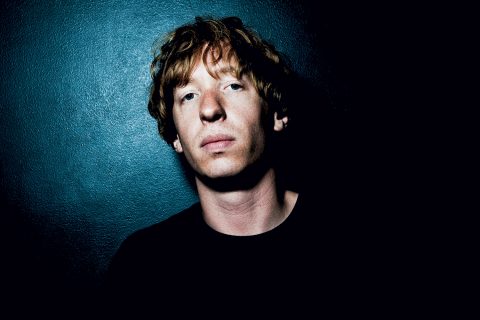
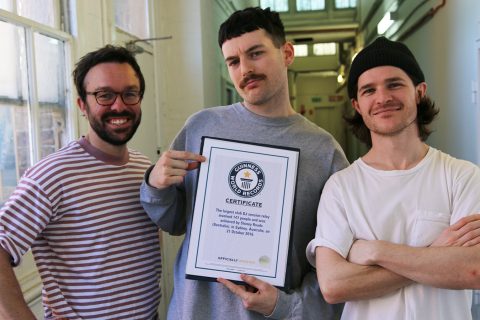
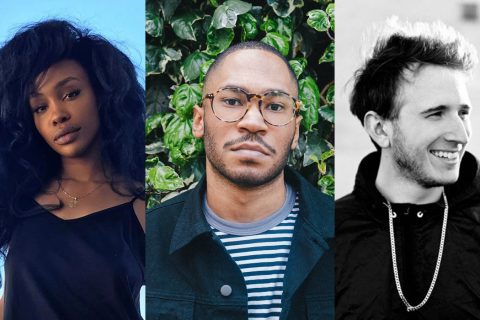
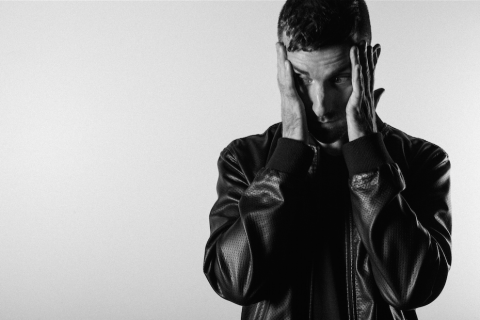
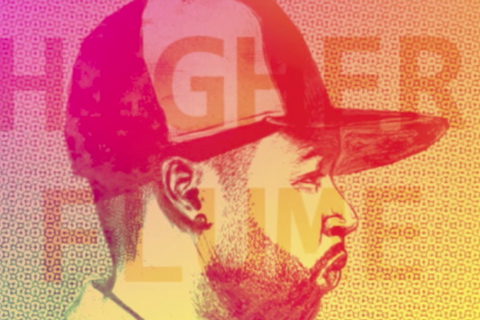
Comments